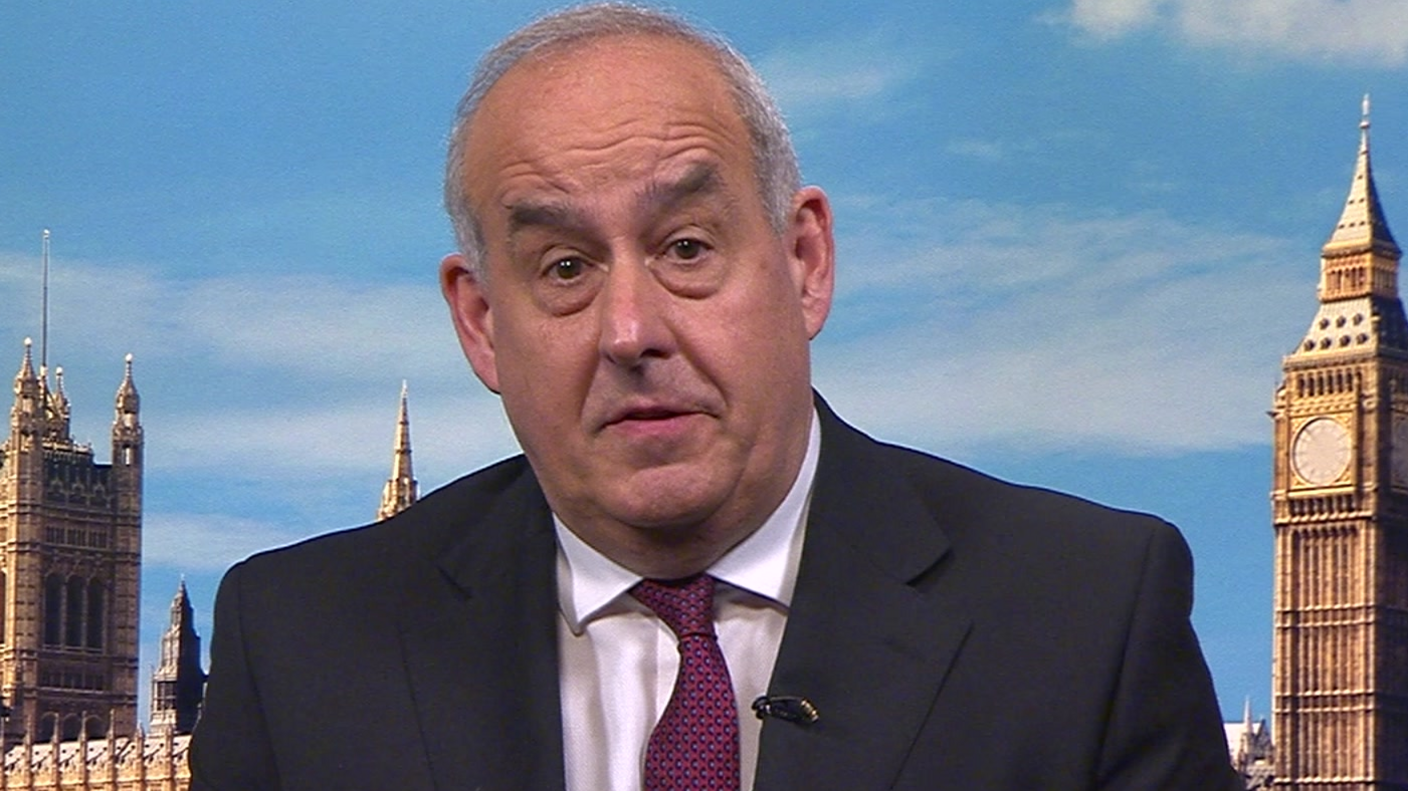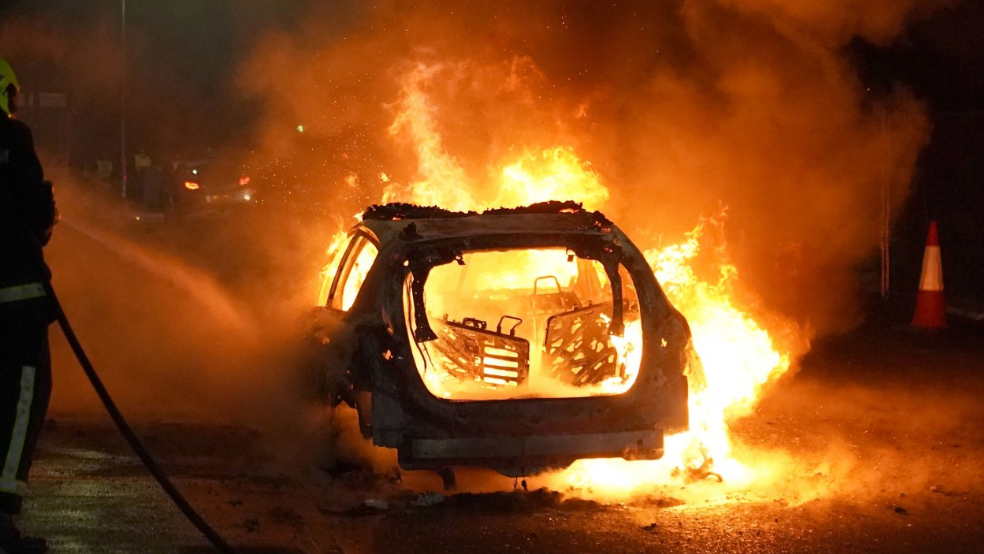'We're watching you,' far-right protesters warned

Lord Hanson said criminal activity was not acceptable
- Published
A Home Office minister has warned those planning far-right protests this weekend that police are watching them.
Demonstrations are expected in cities across the country, from Glasgow to Dover, following violent unrest around the Southport stabbing attack.
Hundreds of mosques are strengthening security amid concern Islamic places of worship could be targeted.
Lord David Hanson said police are monitoring organisers and would be using facial recognition technology to identify people.
Violent Southport protests reveal organising tactics of the far-right
- Published2 August 2024
More than 100 arrests as disorder after Southport attack spreads
- Published1 August 2024
Police forces to co-operate to tackle violent disorder, says PM
- Published1 August 2024
More than 100 people have been arrested at demonstrations after violent disorder was sparked by the murder of three primary school age girls at a dance studio on Monday.
The BBC has identified at least 30 additional demonstrations being planned by far-right activists around the UK, including a new protest in Southport, this weekend.
"Nobody minds peaceful protest," Home Office minister Lord Hanson told BBC Breakfast.
"But what happened this week in Southport, and what's happened elsewhere in the country, is organised individuals who have undertaken criminal activity to intimidate, to attack police, to break personal property, and that's not acceptable."
Highlighting how conspiracy to organise a riot is an offence, he added "we are reminding people who are going to potentially commit this crime that we are watching them through intelligence-led policing".
Asked about the possibility of violent protests this weekend, he told LBC: “There is that potential, but I always say to anybody who's organising this, we will be watching you."
Security staff are being hired at mosques in cities across the UK due to phoned-in threats about “targeted attacks”, the Muslim Council of Britain (MCB) reported.
There is “deep-seated anxiety” and “palpable fear” among communities, MCB secretary-general Zara Mohammed said, urging mosques to work closely with police.
Ms Mohammed said: “We go by what we’ve seen already and from what online posters are saying, but it sounds like far-right thugs and mobs are going to seek to intimidate congregations and mosques.
“In Southport they were pelting stones and glass bottles, shouting Islamophobic slurs and abuse.
“So it’s likely that we may again see groups of men and thugs coming together outside of the mosques to intimidate.”
Protests are understood to be planned for areas such as Liverpool, Glasgow, Lancaster, Blackburn, Newcastle, Birmingham, Sunderland, Dover, Middlesbrough, Leeds and Hull, the MCB said.

Firefighters tend to a burning police car following a violent protest in Hartlepool
On Thursday, Prime Minister Sir Keir Starmer said groups seeking to incite disorder will be treated similarly to football hooligans, with more Criminal Behaviour Orders (CBO) to restrict the movement of offenders and stop them travelling.
"These thugs are mobile, they move from community to community, and we must have a police response that can do the same," he said.
A former counter-terrorism police chief accused Reform UK leader Nigel Farage of helping incite the violence that broke out earlier this week, for a video he released on Tuesday in which he questioned “whether the truth is being withheld from us”.
Neil Basu – who was in charge of counter-terrorism at Scotland Yard from 2018 to 2021 – said there were “real world consequences” when public figures like the MP for Clacton failed to “keep their mouth shut”.
"That is a far-right politician once again trying to direct policing and law and order," Mr Basu told ITV's Good Morning Britain.
Mr Farage insisted he had “merely expressed a sense of sadness and concern that is being felt by absolutely everybody I know – ‘what the hell is going on?’”
He added: “I think it’s perfectly reasonable to ask what is happening to law and order in our country."
Civil rights campaign Big Brother Watch has expressed concern about the use of facial recognition technology, which the group's director Silkie Carlo described as "alarming" for democracy.
"Whilst common in Russia and China, live facial recognition is banned in Europe," she said.
"This AI surveillance turns members of the public into walking ID cards, is dangerously inaccurate and has no explicit legal basis in the UK."